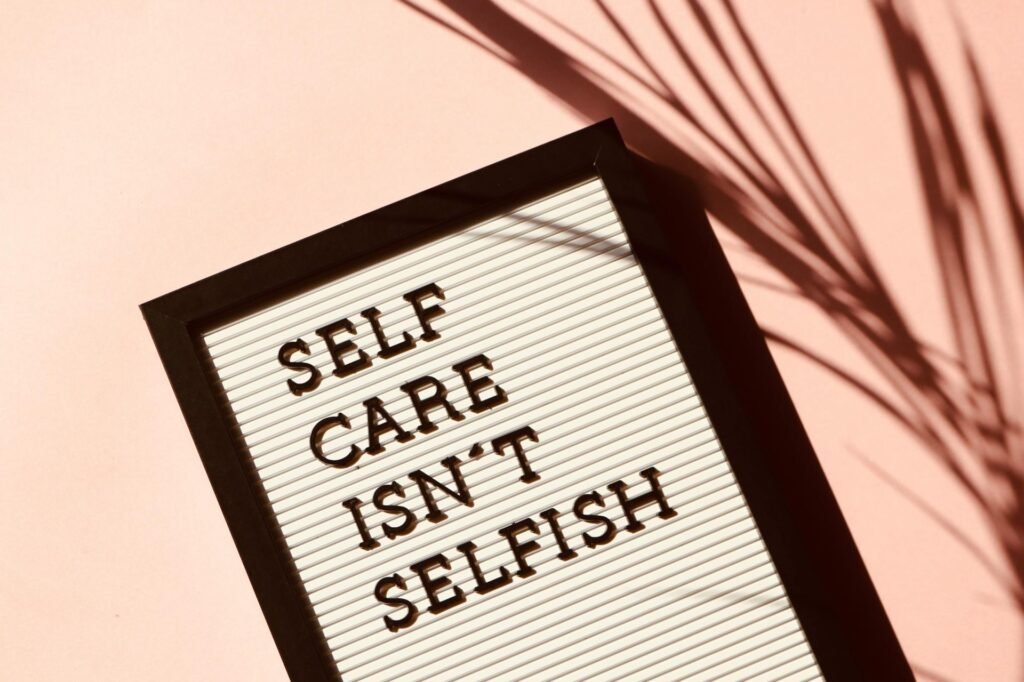What is Self-Care?

Self-care is a broad and multifaceted concept encompassing a wide range of practices and activities aimed at promoting one’s own physical, mental, emotional, and spiritual well-being. It requires taking clear, deliberate steps to maintain one’s health and overall quality of life. Self-care is about recognising one’s needs and making choices, prioritising one’s well-being. It’s a practice of self-compassion, self-love, and self-preservation.
Self-care can differ significantly from person to person because it is highly individualised and depends on one’s preferences, values, and circumstances. Here are some common categories and examples of self-care practices:
- Physical Self-Care:
- Eating a balanced diet and staying hydrated.
- Exercising regularly to maintain physical fitness.
- Getting sufficient sleep and rest.
- Attending to personal hygiene and grooming.
- Mental and Emotional Self-Care:
- Practicing techniques like mindfulness or meditation to control stress.
- Engaging in activities that challenge your mind and creativity.
- Setting healthy boundaries to protect your mental & emotional well-being.
- Raising emotional strength and resilience.
- Seeking support and counselling when needed to address mental health concerns.
- Social Self-Care:
- Cultivating and maintaining positive relationships with family and friends.
- Connecting with a supportive community or social group.
- Engaging in regular social activities to prevent isolation and loneliness.
- Spiritual Self-Care:
- Engaging in religious, philosophical, or reflective practices that align with your beliefs and values.
- Spending time in nature, meditating, or engaging in other activities that help you connect with a sense of purpose and meaning.
- Time Management Self-Care:
- Prioritizing your daily and long-term goals.
- Maintaining a work-life balance to prevent burnout.
- Learning to say no to commitments that overwhelm you.
- Goal Setting and Self-Improvement:
- Setting and working toward personal goals contributing to your growth and happiness.
- Engaging in lifelong learning and skill development.
- Leisure and Recreation:
- Making time for leisure activities and hobbies that you enjoy.
- Taking regular breaks from work and responsibilities to relax and recharge.
Self-care is an ongoing and evolving practice. It involves self-awareness and self-compassion, recognising when one needs care and making choices to fulfil those needs. Self-care can also prevent burnout, reduce stress, and enhance overall well-being.
